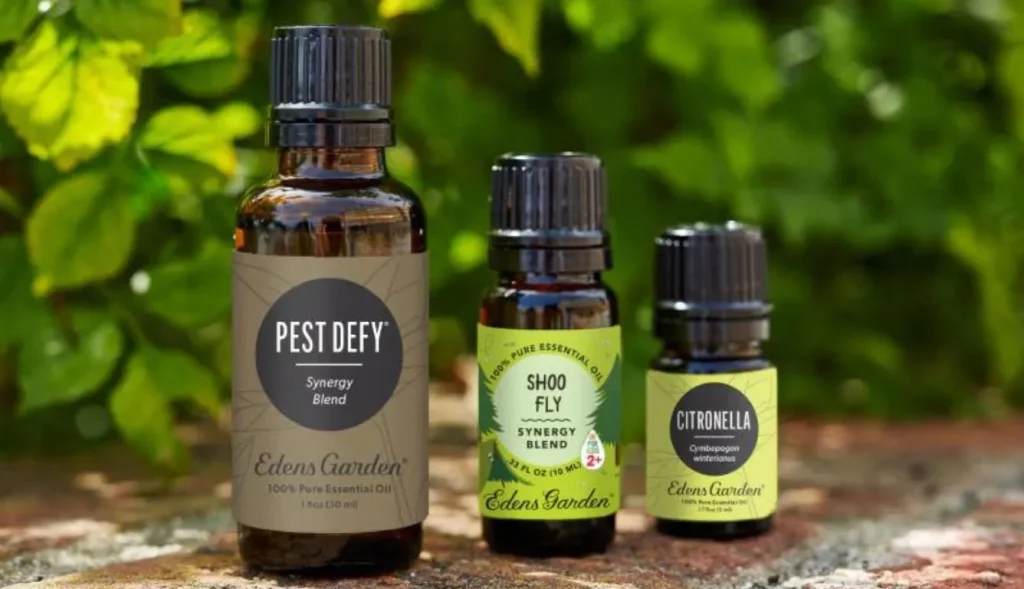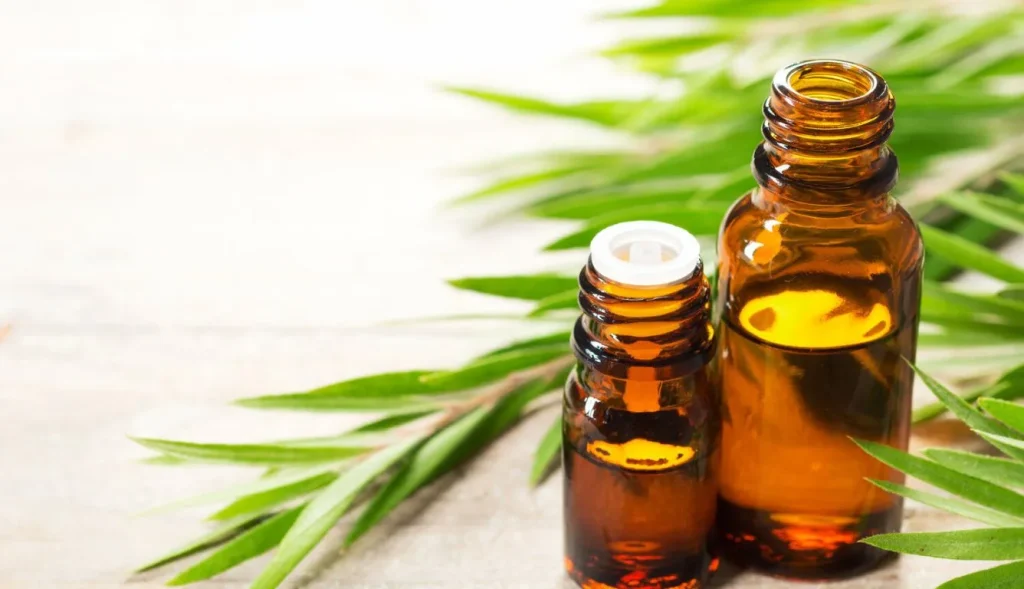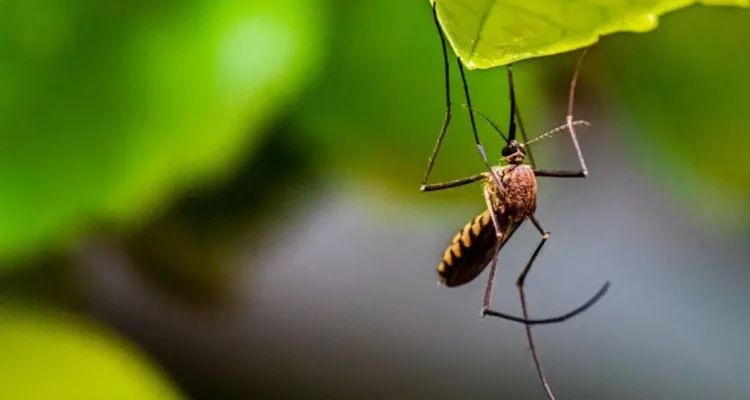Introduction
Gnats can be incredibly irritating, especially when they invade your home, outdoor spaces, or even your skin. While there are plenty of chemical solutions out there to combat these pesky creatures, many people prefer using natural alternatives. Essential oils, in particular, have gained popularity as a safe and effective way to repel gnats. But which oils work best? In this article, we’ll explore the top essential oils that repel gnats, why they work, and how to use them effectively.

What Are Gnats?
Gnats are tiny flying insects that are often mistaken for fruit flies or mosquitoes. They are attracted to moisture, decaying organic material, and plants, making them common in homes, gardens, and even near bodies of water.
Different Types of Gnats
Not all gnats are the same. Some common types include fungus gnats, which are found near plants, and biting midges, which can cause itchy bites. Understanding the type of gnat you’re dealing with can help in choosing the right essential oils.
Why Use Essential Oils to Repel Gnats?
When it comes to repelling gnats, many people prefer essential oils because they are natural, non-toxic, and have a variety of additional benefits, like pleasant scents.
The Benefits of Essential Oils
Essential oils not only repel gnats, but they also offer therapeutic properties, such as promoting relaxation or boosting mood. Many oils are multi-functional, which makes them a great choice for home use.
Comparing Chemical Repellents vs. Natural Repellents
Chemical repellents are effective but can come with harsh ingredients that aren’t safe for everyone, especially children and pets. Essential oils offer a natural alternative that’s both safe and effective.
How Essential Oils Repel Gnats
The compounds found in essential oils, such as terpenes, phenols, and aldehydes, interfere with an insect’s ability to smell, which is how they locate humans and plants. By masking these scents, essential oils can help keep gnats at bay.
The Science Behind Essential Oils as Natural Insect Repellents
Many essential oils contain active compounds that disrupt the olfactory receptors of insects. This makes it difficult for them to locate food or hosts, reducing their presence in your environment.
Top Essential Oils That Repel Gnats
1. Peppermint Oil
Peppermint oil has a strong, refreshing scent that gnats find intolerable. Its active ingredient, menthol, is particularly effective at repelling flying insects.
2. Lavender Oil
Known for its soothing properties, lavender oil also doubles as a powerful gnat repellent. Its pleasant scent makes it a great choice for indoor use.
3. Tea Tree Oil
Tea tree oil has antimicrobial properties that not only repel gnats but also help treat any bites or skin irritation they may leave behind.
4. Eucalyptus Oil
Eucalyptus oil is a favorite for outdoor use because of its potent smell, which gnats and other bugs can’t stand. It’s particularly effective when diffused in larger areas.
5. Lemongrass Oil
Lemongrass oil is often used in combination with other oils like citronella. Its citrusy scent is both pleasant for humans and highly effective against gnats.
6. Citronella Oil
Citronella is well-known for repelling mosquitoes, but it’s equally effective against gnats. Its use in candles and sprays makes it a go-to option for outdoor spaces.
7. Cedarwood Oil
Cedarwood oil works by emitting compounds that are toxic to gnats. It’s particularly effective when used in closets or storage areas to keep these pests away.
How to Use Essential Oils to Repel Gnats
Creating a DIY Gnat-Repellent Spray
Mix a few drops of your chosen essential oil with water and a carrier oil (like coconut oil) in a spray bottle. Shake well and spray around windows, doors, or outdoor areas where gnats are prevalent.
Essential Oil Diffusers for Gnat Control
Using an essential oil diffuser can spread the repellent scent throughout your home. This is especially useful for indoor spaces like living rooms or bedrooms.
Topical Application: Safe Methods for Using Oils on Skin
Always dilute essential oils with a carrier oil before applying them to your skin. This will not only make the oils safe to use but also extend their effectiveness in repelling gnats.
Safety Precautions When Using Essential Oils
Dilution Guidelines
Essential oils are highly concentrated and should always be diluted in water or a carrier oil before use. A common ratio is 10 drops of essential oil per ounce of carrier oil.
Allergy Considerations
Some people may be allergic to certain essential oils. Always perform a patch test on your skin before widespread use to ensure there’s no adverse reaction.
Pet Safety
Certain essential oils can be harmful to pets, especially cats. Ensure that the oils you choose are safe for the animals in your home, or avoid using them in areas your pets frequent.
Essential Oil Blends for Maximum Effectiveness
Blending oils like citronella, lavender, and eucalyptus can create a more potent repellent. Combining these oils increases their ability to keep gnats away.
How Long Do Essential Oils Last as a Gnat Repellent?
Essential oils typically last for a few hours once applied. You’ll need to reapply the oils or spray every few hours, especially in outdoor areas.
Using Essential Oils Indoors vs. Outdoors
Best Practices for Outdoor Use
When using essential oils outdoors, it’s important to refresh the application regularly, as the oils can evaporate quickly in open spaces.
Indoor Solutions for Gnat Prevention
Use essential oil diffusers, sprays, or even soaked cotton balls placed near windows and doors to keep gnats from entering your home.
DIY Gnat Traps with Essential Oils
You can create a simple gnat trap by mixing water, dish soap, and a few drops of essential oil. The gnats will be attracted to the scent, but the soap will trap them.
Preventing Gnats with Essential Oils: A Long-Term Solution
By using essential oils consistently, you can reduce gnat populations over time. Combining oils with proper hygiene and cleaning practices will keep your space gnat-free.
Other Natural Methods to Repel Gnats
Besides essential oils, you can use vinegar traps, candles, or even certain plants like basil to deter gnats from your space.
FAQs
How long do essential oils take to repel gnats?
Most essential oils work immediately, but for lasting effects, reapply every few hours.
Can I use essential oils to repel gnats from plants?
Yes, essential oils like peppermint or lavender can be used around plants to deter gnats.
Are essential oils safe for pets?
Some essential oils are safe for pets, but others, like tea tree oil, can be harmful. Always check before use.
What essential oils work best for outdoor gnat control?
Citronella, eucalyptus, and lemongrass oils are particularly effective in outdoor settings.
Can I mix essential oils for a stronger gnat repellent?
Yes, blending oils can increase their repellent effectiveness, offering better results.

Conclusion
Essential oils offer an effective and natural solution to repelling gnats. From peppermint to lavender, these oils not only keep the pests away but also make your environment smell great. By using essential oils safely and effectively, you can enjoy a gnat-free home without resorting to harsh chemicals.


Congratulation!